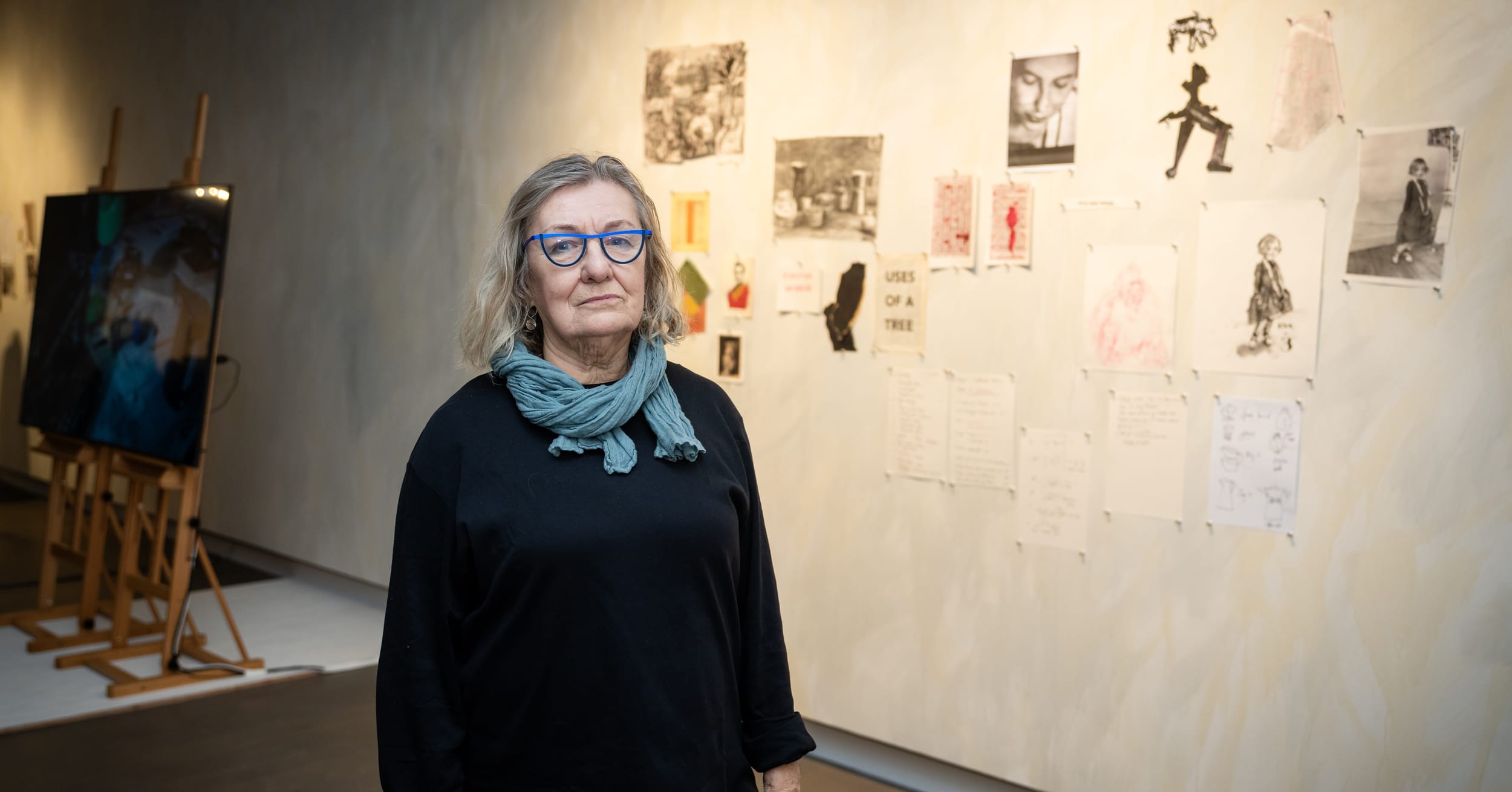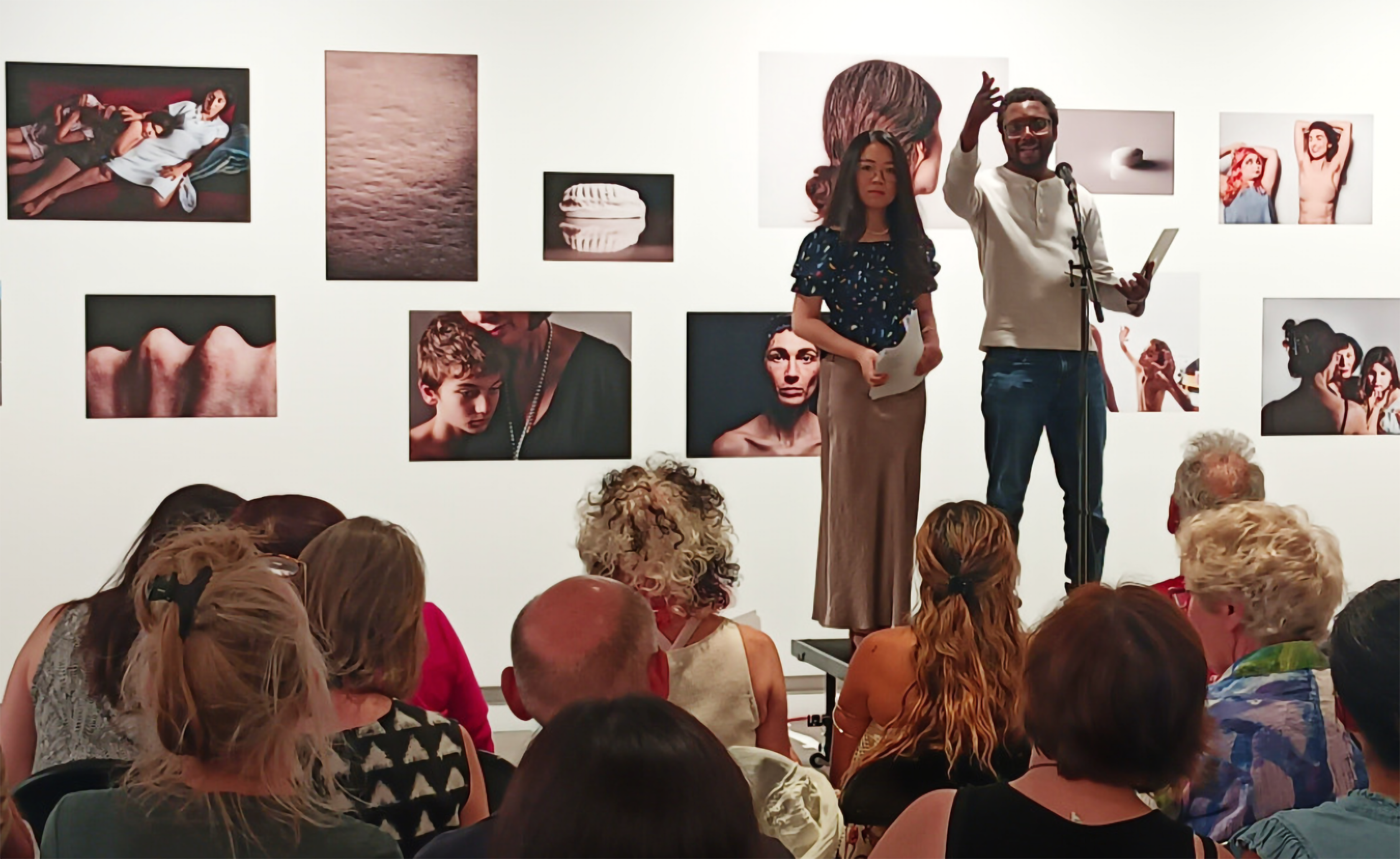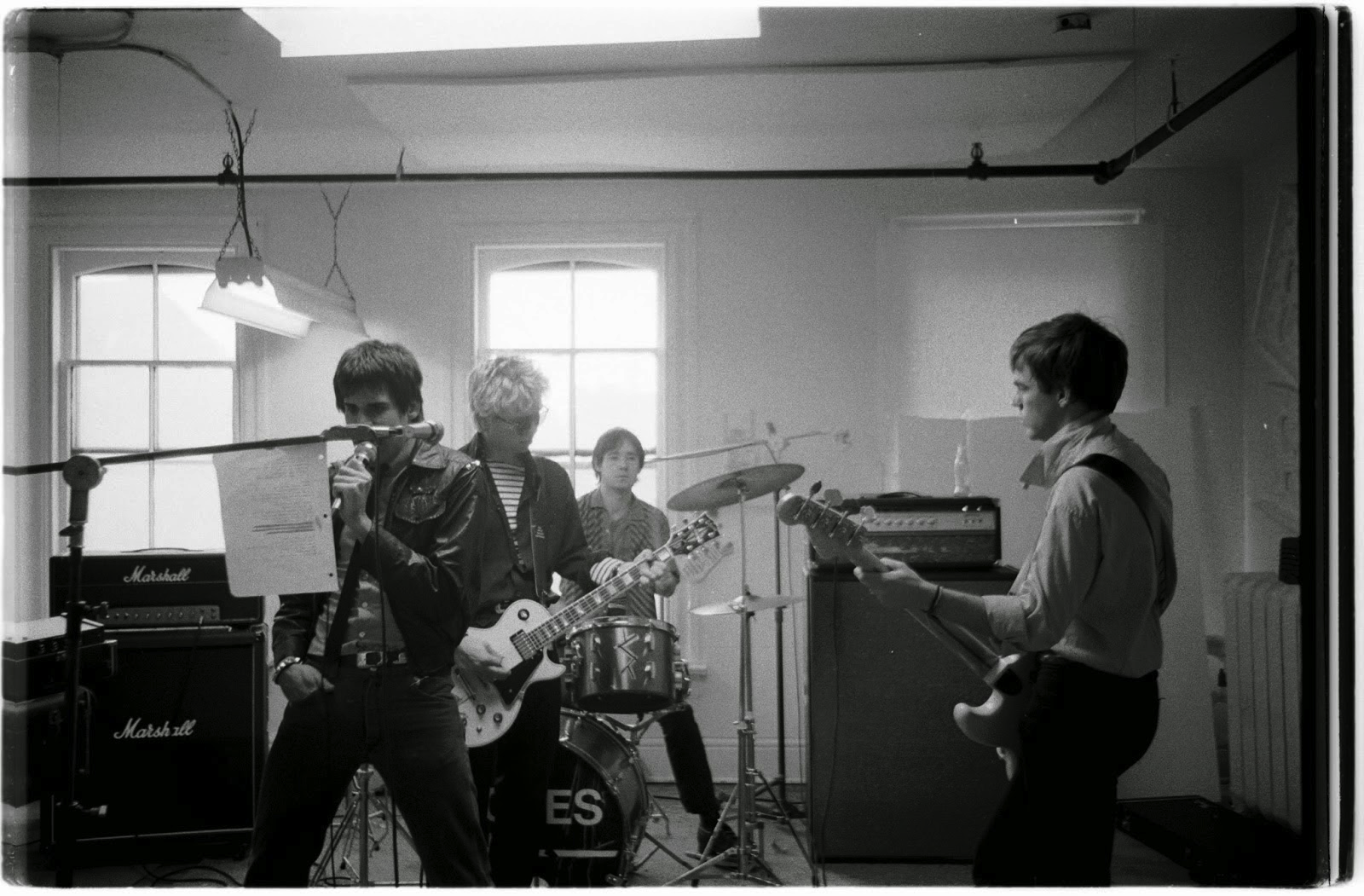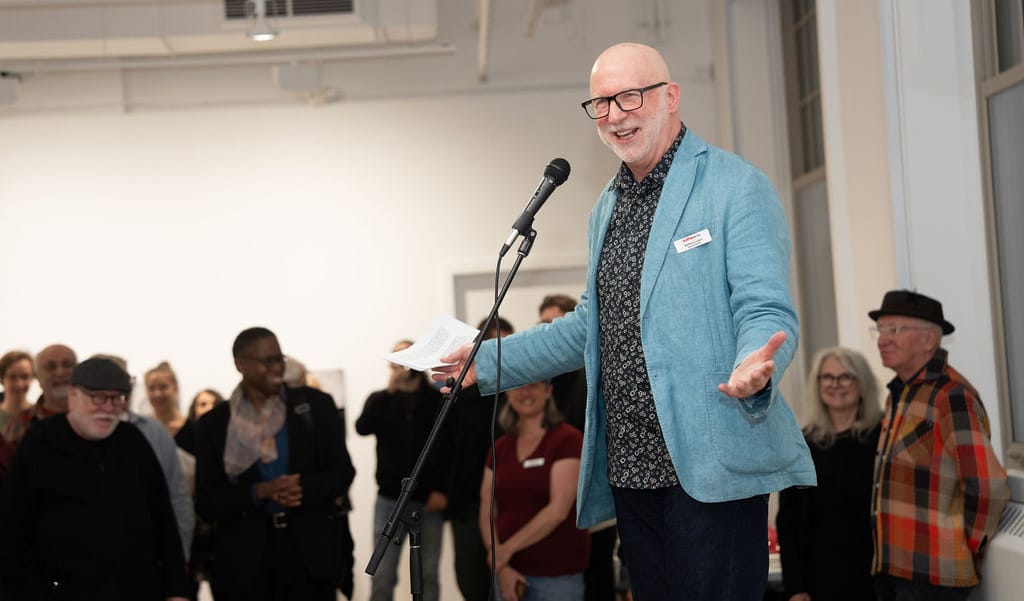Theatre as Necessity in Disempowering Times
Actor, director, and playwright Christopher Morris on the intensive research and moral questioning behind his play The Runner, opening this week in a new production presented by Koffler Arts.
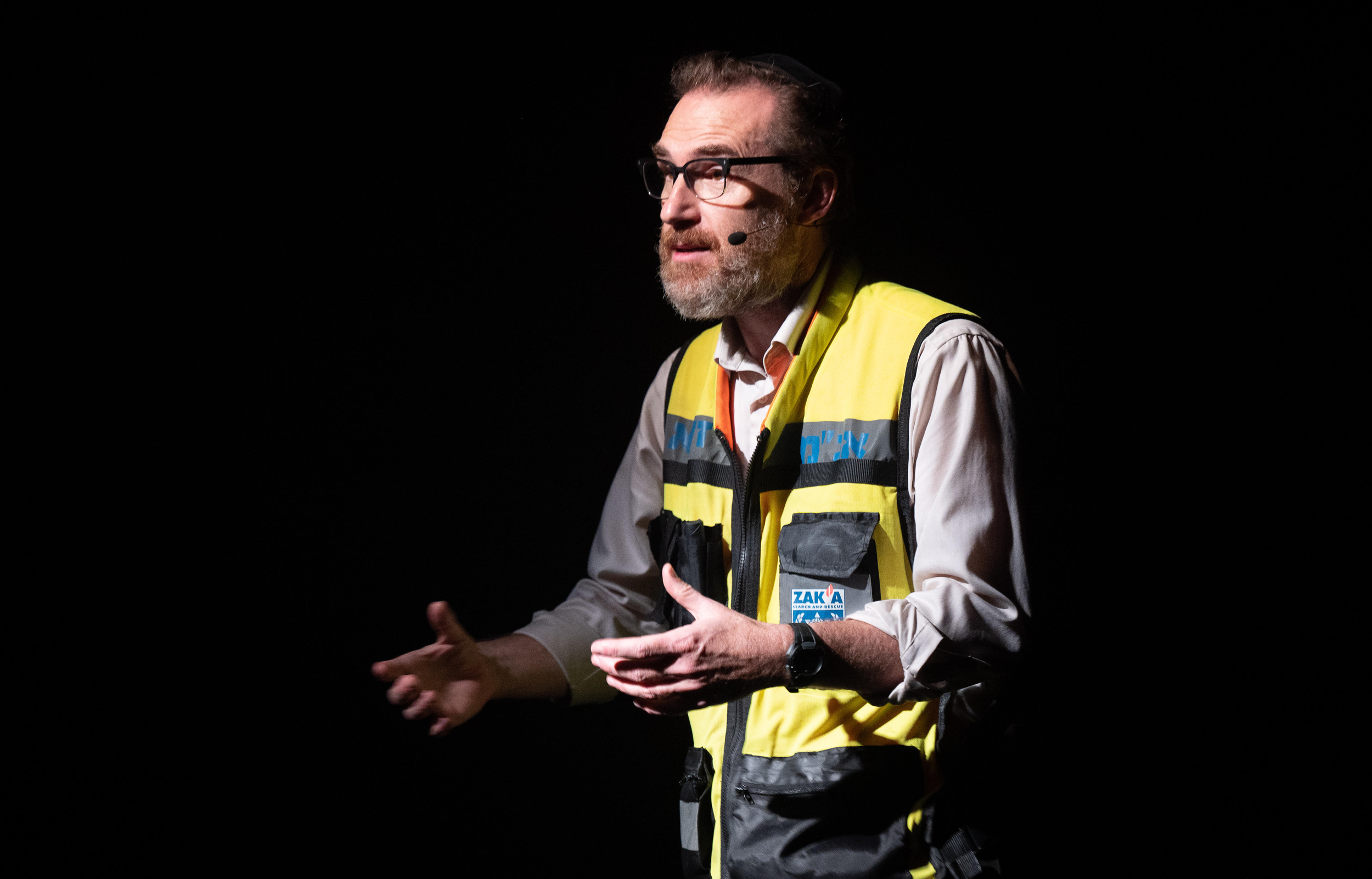
I first met Christopher Morris in the summer of 2000, when we were both involved in a play directed by Paul Thompson, one of Canada’s pioneers of collective theatre creation. Ten years later, Morris invited me to collaborate as co-writer on his play The Road to Paradise. It was an ambitious production by his theatre company Human Cargo, with a research process that required our travelling together to Petawawa, Ontario, Pakistan, and Afghanistan to conduct interviews with the families of Canadian soldiers and Taliban fighters. Speaking to people in Lahore, Karachi, Swat, and Kabul humanized a distant war and shattered many of the assumptions I had about people who lived in countries I knew only from news clips.
In looking over Morris’s nearly 20 years of running Human Cargo, the best way I can describe what he does is that he takes on politically charged and fraught subjects in an effort to humanize their dilemmas and conflicts. Currently, he is developing a play about the war in Ukraine with Mariupol Drama Theatre called Katya and Marichka.
In 2008, Morris went to Israel for the first time to research The Runner, a one person-show about Jacob, a religious Israeli Jew who volunteers for ZAKA, an organization of emergency responders. Ten years and many drafts later, the play premiered in Toronto in November 2018 at Theatre Passe Muraille, directed by the late, great Daniel Brooks. The play was performed in five cities across Canada to great critical success, winning three Dora Mavor Moore awards for best script, best production, and best directing.
Last year, The Runner became the centre of controversy when the Belfry Theatre in Victoria and PuSH festival in Vancouver both cancelled scheduled productions of the play, capitulating to protests from pro-Palestinian groups. The play—a gritty, complex, and soul-destroying journey into Jacob’s biases and prejudices—was deemed by some as unsuitable in the post-October 7 world. Given the loss of Palestinian lives from the war in Gaza, the play’s critics didn’t feel it was appropriate to have only an Israeli voice onstage.
The Harold Green Theatre in Toronto, in association with Koffler Arts, is presenting The Runner from April 26 to May 4, with Morris performing the role of Jacob.
The Runner tells the story of Jacob, a religious Jew living in Israel. He is also a ZAKA volunteer. As someone with no cultural, religious, or political ties to Israel, what compelled you to write this story?
The ZAKA idea came to me when I was in high school in Markham, Ontario. I heard a news report on CBC, and it blew my mind that there were people out there volunteering to collect the remains of other Jews killed in terror attacks. I learned their job is to assemble the body for burial, and they do this as volunteer work. It fascinated me that people had the capacity to do that. I’m squeamish about blood and stuff like that, I certainly could never have been a doctor, I even have trouble getting blood taken at the doctor’s office. So when I heard about ZAKA, it stuck with me. As I got more confident as a writer, I thought it would be interesting to explore theatrically. The human stakes of doing something like that. It’s fertile territory.
Fertile territory in a pretty conflicted part of the world. I really only knew about ZAKA from terror attacks, when they went to scenes of suicide bombings during the second intifada. But it’s more than that?
When I first went to Israel in 2008, I learned that ZAKA deals with all unnatural death. As you know, for Jews it’s important to make sure that when you’re buried your body and the blood you spill at death is intact and buried with you. So if there’s a car accident, and someone dies, and they lose their body parts, ZAKA goes to the site of the accident.
Their main priority is to offer dignity and humanity to the dead. They collect all the remains, every piece of skin, every drop of blood, to the extent where if blood soaks into a seat cushion, they will cut into the cushion as far as the blood goes. Because that’s the person’s blood, the blood of the soul, and they have to collect it quickly, since by law it’s ideal if Jews are buried before sundown the following day.
Learning that ZAKA wasn’t just about terror attacks opened me up in a certain way. Because I went there with a certain bias, and the more I was in Israel and the West Bank, the more I learned, not just about ZAKA, but about Israelis and Palestinians, and my biases about them. And it’s only when I stayed open that the surprising elements came. When people and their conflicts became real to me. Human.
I’m curious about what your research process was like. Was this similar to what we did in Pakistan and Afghanistan?
Yes, it was. Like with all the projects I do, I come into a situation with a certain bias, and it’s my job to go to the place where the play is set and expose myself to as many contrasting points of view in order to learn as much as I can. So I went to Israel and the West Bank to try and understand as many of the cultural and social forces influencing Jacob. But I also had to approach it creatively. Theatre is conflict. So even when I was travelling, I’m always thinking about that, looking for contradiction in a character, some kind of dilemma. When I’d talk to ZAKA volunteers, they’d be explaining some of the work they did, and as profoundly fascinating as it was, I kept thinking, where’s the dilemma, the internal conflict?
Who did you speak to?
I met the former head of ZAKA numerous times. I was invited to speak with ZAKA members in their daily work, and I connected with a ZAKA member who lived in Northern Israel on a religious kibbutz. It was helpful to go there, spend time with his family on shabbat. I wanted to try and learn as much as I could about his perspective. Equally, because of my Canadian passport, I had total freedom to go in and out of the Palestinian territories as much as I wanted. There was no scrutiny. Israelis can’t go into the West Bank for security reasons, but for me, as a Canadian, it was a whole other experience. On my first trip in Jerusalem, I was staying in a neighbourhood close to the buses to Qalandiya check point. In 35 minutes I’d be at the check point, quickly pass through and I was in Ramallah. This was in contrast to a Palestinian who might have to wait hours to go through. It was important to try and understand what life was like for Palestinians.
What Palestinian story found its way into your play?
At the beginning of the research process, I wanted to explore the circumstances around the 17-year-old Palestinian girl Ayat al-Akhras, a straight A student who had dreams of going to university and becoming a journalist, who blew herself up at a Jerusalem supermarket. It happened in 2002, and one of the victims was an Israeli teenage girl her age. The al-Akhras family lived in the Deheishe Refugee Camp, and through various contacts, I managed to meet Ayat’s parents. On multiple occasions I met them in their home and spoke with them about their daughter.
What was that like?
We talked about many things, but most of all it was very hard to see a father talking about the death of his daughter.
How often did you go to the West Bank? Was it difficult to be there?
In total I’d say I’ve been there over 20 times. I went to Nablus, Bethlehem, and Hebron. I’ve also been on a tour multiple times through the West Bank led by former Israeli soldiers. It’s called Breaking the Silence. The former soldiers wanted to show Israelis and foreigners the circumstances Palestinians are living under. It was sobering. I would find myself, within a matter of 24 hours in the living room of the al-Akhras family, then in the living room of a religious Jewish family in Israel.
What did you learn from these different points of view?
I learned their shared humanity. I tried to be as sensitive as I could. I didn’t have an agenda. In wanting to tell a particular story from a particular point of view, I wanted to raise questions, which I believe good theatre does. I always feel it is my moral obligation to listen to opposing views living close to each other but in different worlds. Artistically that mindset and approach, the risk taking of it, being open to that, helps create nuanced work. It’s also why it took me ten years to write. It was a long and difficult process. But the subject is so complex and difficult, it needed that time.
Daniel Brooks, who passed away two years ago, was the director and dramaturge of The Runner. What role did he have in terms of shaping it?
Daniel had a rigorous, unrelenting mind to get the best out of whatever he was working on. I was inspired by that attitude. I knew he had been to Israel as a teenager and worked on a kibbutz. But things had changed a lot since then, and he was keen on going back to learn more, to see how Israel had changed. So he joined me on a research trip in 2016, I introduced him to some ZAKA guys, we went to Ramallah, and I took him on a Breaking the Silence trip. That trip was a transformational moment for me and Daniel’s collaboration. He inspired me to explore the play’s form, which resulted in the one-person play format the script is in. He challenged me every step of the way. When I think about doing the show again, I feel lucky to be in dialogue with Daniel again.
How did Breaking the Silence affect the way you saw Jacob’s character and dilemma?
Like the soldiers with Breaking the Silence, Jacob is always trying to balance the contradictions of wanting to live in Israel and make an Israeli home, but at the same time, is trying to reconcile actions from his community he doesn’t agree with that are being made towards the Palestinian population. Actions that he feels are dehumanizing.
Your show became the centre of a debate about freedom of speech and social protest last year when The Runner was cancelled at both the Belfry Theatre in Victoria and PuSH festival in Vancouver. We spoke during those weeks, and I remember how difficult it all seemed considering your desire to tell, what I think, is a very human story. Yet some people didn’t want this particular story to be told in our post-October 7 world. Doing the show now, just over one year later what is your perspective on that time?
We are living in disempowering times, times that are hard to navigate. That’s the current political climate. So it doesn’t surprise me that some people might want to oppose a particular voice or perspective. It’s a natural response to our destructive and turbulent times.
I have a different perspective. I see theatre as a communal experience. It’s different from watching a movie. In a play, you have to share a room with others whose points of view and opinions you might not agree with. It’s a wonderful thing. Theatre is an opportunity to bring people together. It’s also a place where contrasting ideas can live and be celebrated. It should be a safe place to do that. If the function of theatre is to show human conflict on stage, there will inevitably be different points of view that an audience witnesses.
In The Runner, I’m asking the audience to come along on a particular journey. We’re in the psyche of Jacob, a ZAKA member who treats a young Palestinian woman instead of an Israeli soldier. He does this out of a human instinct to help. In doing so, his small religious Jewish community turns on him. Going on a theatrical journey with a guy like that is a great opportunity to hear challenging ideas in a safe environment. It also can lead to conversation, and I believe the need for conversation right now is crucial. But I understand the play is not for everybody. Though I’d like you to be part of that kind of talk, you don’t have to go see the show.
My general impression these days is that having different ideas can feel threatening.
I don’t agree with demonizing an entire group of people. We need to see each other’s humanity, even those whose ideas or perspectives we might not agree with. That’s why I’m excited about The Runner happening now and I applaud and appreciate artistic directors like the ones at Harold Green who want to open that kind of dialogue to their audiences. To me, I see The Runner as a warning against demonization, showing the importance of finding humanity in ourselves and each other. I feel the way through these challenging times is to find ways that connect us more, to have empathy for each other and opposing views. Dialogue is the way forward. Without that we’re going nowhere.
The Road to Paradise had a large cast of 7 actors that allowed us to tell different stories across different countries. What did the solo form offer you for The Runner?
Why I love the solo form as a playwright is it proposes questions told through the single story of one person. You can’t tell every story, and you can’t really answer all the questions. But it’s the pursuit of questions that is most important both in a one person show and in life. In The Runner, there’s one line I’m somewhat reluctant to have because I feel I’m offering a kind of solution to a very complicated problem when Jacob says, “That’s all that matters. Kindness. An act of kindness.” That’s the closest I’ll get to offering a solution to anything. And I know it’s not really a solution. Yet when I step back and go, as a human being, who is trying to be thoughtful and empathetic, who wants to create a better world and community, an act of kindness is pretty damn good. Jacob is saying this in response to what the Palestinian teenager offers him. She offers him grace and kindness in a moment when she shouldn’t have to. She’s the character in the play who demonstrates humanity at its most hopeful.


